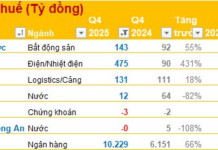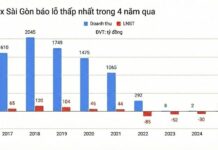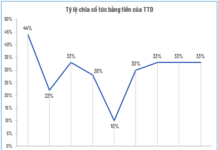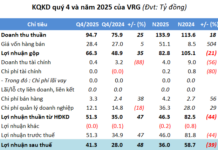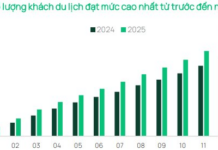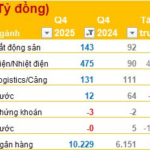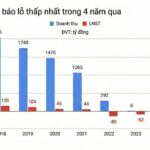
The Prime Minister expects investors
|
According to the Ministry of Science and Technology, after nearly 20 years of implementation, the Law on Information Technology 2006 (IT) has revealed several limitations and inadequacies. It can no longer keep up with the rapid development of digital technology and the requirements of the comprehensive digital transformation process.
The IT Law was established when breakthrough technologies such as Artificial Intelligence (AI), Big Data, Internet of Things (IoT), Cloud Computing, and Blockchain had not yet emerged or were not widely adopted. As a result, it fails to encompass the new requirements that have arisen in today’s reality.
There are legal gaps in the legal system, and many issues remain unregulated or are regulated by multiple documents. These include the digitization of the physical world, the connection of the physical and digital worlds into a unified world, the infrastructure for digital transformation, digital government, and digital transformation within the political system, foundational digital economy, digital citizens, and digital culture.
The Digital Transformation Law aims to digitize comprehensively, creating a digital environment that interacts with the physical environment to change the way activities are organized, services are provided, and new value is created.
At the same time, it aims to perfect the legal system for national digitization and create an interdisciplinary legal foundation for digital transformation in sectors and fields: digitization, connecting the physical and digital worlds, infrastructure for digital transformation, digital economy, digital society, and measures to ensure digital transformation.
Regulating the relationship between entities in the digital ecosystem, promoting the development of digital government, and digital transformation of agencies within the political system, fostering the growth of the digital economy and digital society, and enhancing international cooperation and integration.
Prioritize national resources to ensure essential conditions for digital transformation
The draft proposes state policies on digital transformation. It identifies digital transformation as a top strategic breakthrough, placing citizens and businesses at the center as the main subjects and driving forces. The state plays a role in institution-building, leading and promoting the national digital transformation process towards speed, sustainability, inclusiveness, and safety.
Prioritize investment from the state budget and mobilize social resources to build and modernize infrastructure for digital transformation, ensuring synchronization, safety, sustainability, and green growth.
Comprehensively innovate the working methods of agencies within the political system, aiming for an effective and transparent digital government based on data and providing public services with users at its core.
Promote the development of the digital economy as an important driver of growth by supporting businesses in their digital transformation, especially small and medium-sized enterprises, households, and cooperatives; encouraging innovation and developing local digital platforms; and establishing a healthy competitive environment while protecting the rights and interests of consumers and laborers on digital platforms.
Build an inclusive, equitable, and safe digital society by incorporating digital literacy into compulsory education programs, promoting lifelong learning, ensuring the fundamental rights of digital citizens, and creating a civilized and healthy online environment.
Prioritize national resources to ensure essential conditions for digital transformation, focusing on developing high-quality digital human resources, ensuring financial resources, and mastering technologies for digital transformation, especially promoting research, development, application, and mastery of artificial intelligence. This is considered a core element to ensure national digital sovereignty, effectively exploit data resources, and ensure national digital safety, security, and sovereignty.
Improve the state management system for digital transformation towards a streamlined, effective, and efficient direction, while proactively and actively integrating and cooperating internationally.
Nine prohibited acts in digital transformation
The draft clearly states the following prohibited acts in digital transformation:
1. Taking advantage of digital transformation to infringe on national security, social order and safety, morality, and traditional good customs; creating, propagating false information, distorting cultural values, or offending the honor, dignity, and legitimate rights and interests of organizations and individuals.
2. Disseminating, propagating, storing, and using digital data and technology illegally to serve the purpose of violating the law.
3. Obstructing, interfering with, sabotaging, altering, appropriating, or destroying infrastructure for digital transformation, digital platforms, national databases, digital data of organizations, individuals, and state agencies.
4. Hindering or creating difficulties for the legitimate digital transformation activities of organizations, individuals, agencies, and businesses.
5. Violating regulations on personal data protection, information safety, and network security in the process of implementing digital transformation.
6. Taking advantage of digital platforms and technology to commit fraud, deceive, or exploit loopholes, or using deceptive interfaces to manipulate and prevent users from making informed and free choices.
7. Creating or modifying content (text, images, audio, video) using artificial intelligence without clear labeling, causing confusion or with the intention to deceive.
8. Abusing the dominant market position of digital platforms to engage in unfair competitive practices, as defined by competition law, including unfair pricing, discrimination, self-preferencing of platform products and services to prevent market entry or eliminate competitors.
9. Civil servants, public employees, and individuals within the political system inputting information classified as state secrets, personal data without the subject’s consent, or internal information affecting national security and social order into artificial intelligence systems; using artificial intelligence for illegal activities such as fraud, creating misleading information, system sabotage, or illegal access; exploiting artificial intelligence in public places in a way that may leak information; and storing official passwords on devices or artificial intelligence platforms.
– 13:20 15/08/2025
Digital Transformation: Empowering Small Businesses for the New Normal
As of July 2025, Decree 70 mandates that business households adopt electronic invoicing and tax management in line with new standards. This levels the playing field, as digitalization is no longer exclusive to large enterprises but becomes the operational norm for all businesses.
“The Rise of Non-Performing Loans Stalls, Many Banks Improve Loan Quality”
The silver lining in the cloud of non-performing loans is that the upward trajectory of total bad debt at the end of the second quarter showed signs of abating. This improvement can be attributed to a combination of factors: prudent monetary policies, a cautious approach to credit strategies, and the gradual recovery of the economy. As a result, many banks have successfully enhanced their loan quality and mitigated bad debt risks.
“G-Group and MBV Collaboration: Unlocking the Power of Tech and Finance for Digital Transformation”
On August 6, G-Group Technology Corporation and the Vietnam Modern Commercial Joint Stock Bank (MBV) signed a comprehensive strategic cooperation agreement, forging a long-term partnership between two leading enterprises in the fields of technology and finance. This collaboration aims to empower and accelerate comprehensive digital transformation.
“Unlock the Power of Digital Authentication: VNeID on OCB OMNI”
“In a significant step towards enhancing customer experience and supporting the successful implementation of Scheme 06, Orient Commercial Joint Stock Bank (OCB) and the Research and Application Center for Population Database and Civil Status (RAR) under the Ministry of Public Security have joined forces. The two entities have officially signed a contract to integrate electronic authentication services via VNeID into the OCB OMNI application, marking a pivotal move towards optimizing customer journeys and solidarily collaborating with relevant authorities.”
A Model to Help Ho Chi Minh City Businesses Save Billions
With the successful implementation of smart manufacturing, a factory has achieved significant cost savings, amounting to millions of dollars. This remarkable feat has caught the attention of Ho Chi Minh City authorities, who are now planning to replicate this success across various economic sectors.











